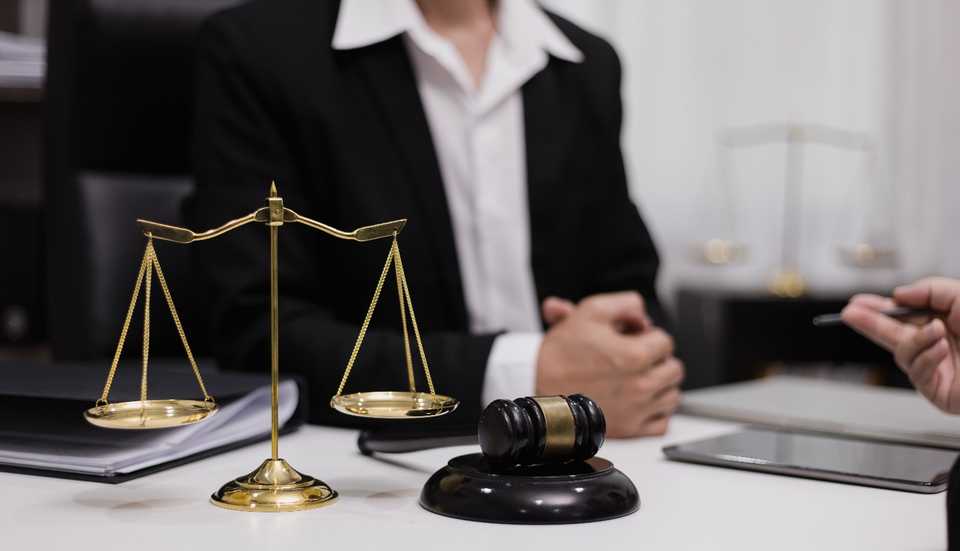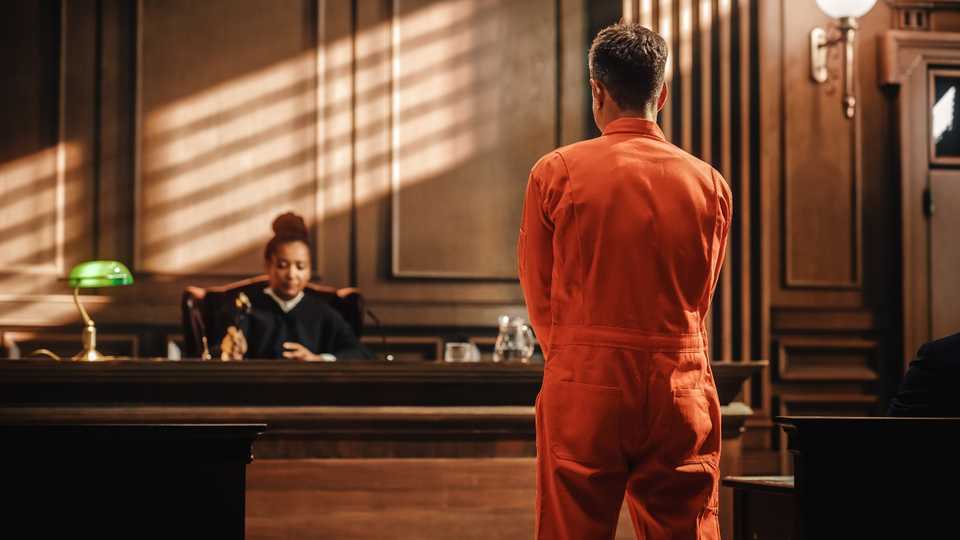When you are accused of committing a crime, your reputation is on the line. Your business or employment is also at stake.
The entire experience is very stressful and full of anxiety for you and your family, to say the least. In fact, it can be a terrifying ordeal because you could lose your freedom.

Whether you are facing a minor criminal charge or a major one, you could also end up with a criminal record and prison time.
It is critical to find the right criminal defence lawyer to stand by your side and help you to win your case.
A good criminal defence lawyer will explain your fundamental rights and prepare your case with a strong strategy.
Strong Network Of Trial Lawyers Across Ontario
Whether you are facing charges in Toronto, Ottawa, Mississauga, Markham, Brampton, Hamilton, Vaughan , or elsewhere in Ontario, you have come to the right place!

JURIGO has an extensive network of criminal defence lawyers who can defend you in fiercely in court and protect your rights.
Fill out our short online form now and get connected FAST to experienced criminal lawyers near you, free of charge!
What is Criminal Law: The Role of Criminal Defence Lawyers
If you are facing criminal charges, it means under federal law, you committed a specific offence.
The Federal Government creates all criminal law matters but each province carries the responsibility of enforcing these laws via provincial police officers, town police officers, and the Royal Canadian Mounted Police. And while the federal government has the power to prosecute or govern offences, the enforcement of the law may vary among Canadian provinces.

In Ontario, criminal offences fall under 3 categories – summary conviction offences, indictable offences, and hybrid offences . Each of these types of offences have varying penalties and trials. Only a criminal defence lawyer would know what to do and give you the right legal advice.
As soon as possible, hire an experienced criminal defence lawyer in Ontario near you! He is familiar with the law and the legal process and will help you step-by-step to get you through your ordeal.
Summary conviction offences
Summary conviction offences are handled without a trial or an indictment. Some examples of summary offences are indecent acts, disturbing the peace, a breach of a protection order, falsifying employment records, vagrancy, solicitation of prostitution , etc.

These are offences considered “less serious” and are punished by a different set of regulations and more lenient sentencing guidelines.
There are pure summary conviction offences and hybrid or dual offences wherein the crown can choose summarily or by indictment.
For instance sexual assault, impaired driving, or theft under $5,000 and murder as a straight indictable charge. The crown attorney has the discretion of choosing indictment for a dual procedure offence or summarily.
Characteristics of Summary Conviction Offences

Summary conviction offences will have some of these characteristics:
- The accused cannot choose a preliminary hearing or be tried in a higher court. He has no right to a jury trial. If you face a summary conviction offence in Ontario, a guilty plea or a trial is conducted in the Ontario Court of Justice.
- The accused must be charged within six months of the offence as after this period they cannot be charged legally unless with a dual procedure offence.
- The accused must be in court on a specific date and time
- .
- The accused charged with a summary conviction offence is not required to submit fingerprints of have his mugshot taken based on the Identification of Criminals Act;
- The police can arrest the accused without a warrant;
- Summary conviction offences have sentencing options that are less serious and carry lower fines or shorter jail times than indictable offences.
- The trials for these offences are held in a provincial court while appeals are made to the next highest court level. Summary conviction appeals in Ontario are heard in the Superior Court of Justice.
What are Indictable offences?
Indictable offences are serious offences such as murder, aggravated assault, breaking and entering, and theft over $5,000.

Depending on the type of indictable offence, an accused individual can:
Have a preliminary hearing;
Select a trial by a judge and a jury;
The court your trial will be conducted.
You will need a lawyer to represent you at court to protect your rights and best interests.
What are Hybrid offences?

A hybrid offence allows the prosecutor to choose based on factors including the gravity of the actions of the accused and the harm done whether to charge as a summary conviction offence or as an indictable offence.
Examples of hybrid offences are assault, impaired driving, sexual assault, and possession of a controlled substance.
The venue for the trial and the penalties will depend on the prosecutor’s choice.
Hire a Lawyer from JURIGO if you have been charged with a criminal offence .
Fill out the form on this page to protect your rights and freedom.
Penalties for Criminal Offences in Ontario

The Criminal Code in Canada provides penalties for criminal offences for each specific offence.
| Type of Offence | Maximum Punishment |
|---|---|
| Summary Conviction Offence | A $5,000 fine or two years less a day in prison, or both. |
Some offences have different maximum jail time if prosecuted summarily . Examples are:
- Assault causing bodily harm or Assault with a weapon: Maximum 18 months
- Sexual assault: Maximum 18 months
- Indecent exposure to a person under 16: Maximum six months
| Type of Offence | Maximum Punishment |
|---|---|
| Indictable Offence | 2 years to Life Imprisonment depending on the offence |
The _Criminal Code_has reclassified indictable offences with a punishment of 10 years imprisonment or less as hybrid offences which can be treated as an indictable offence or a summary offence.
| Type of Offence | Maximum Punishment |
|---|---|
| Hybrid Offence | Summary Offences have a maximum sentence of 2 years or a fine, or both. Indictable offences have a maximum jail time which is more than 2 years. |
Factors that affect the final sentence
The Criminal Code also provides minimum penalties which means the judge cannot give a penalty below the set minimum.
While a range of penalties is included in the Criminal Code, the Court can also look at the personal circumstances of an accused, such as if he has employment, a family, and whether it is a first offence or not .
These factors have a bearing on the final penalty. Make sure to have an experienced criminal defence lawyer at your sentencing hearing to represent you.
What is the cost of Hiring a Criminal Defense Lawyer?
You are not required to hire a criminal defense lawyer to defend you. However, a good lawyer can prepare a strong case to help you win.
How much will you pay a good criminal defense lawyer in Ontario?
Lawyers can bill a client for their services in different ways . For criminal cases, a lawyer can set an hourly fee for the time spent on your case or a flat fee for a specific legal service.

Contingency fees depend on the percentage of the outcome but are rarely applied to criminal cases. The fees charged by a lawyer also depend on his experience, reputation, and the complexity of the case.
Oftentimes**, a “retainer” or an advance payment** is requested by a criminal lawyer. He can also ask for court fees and other expenses during the course of the proceedings.
Average Lawyer Fees in Ontario
Below is a table showing the average fees charged by criminal lawyers in Ontario.
| Legal Service | Average Fee/s |
|---|---|
| Criminal Case (no trial) | $2,000 to $12,000++ |
| Criminal Case with trial | $5,000 to $50,000++ |
| Hourly Fee | From $160 (less experienced) to $700 (more than 20 years of experience) |
Every criminal case is unique so the final amount of lawyer fees vary based on the amount of time spent on the case and the lawyer’s credentials.
The fees that lawyers charge in Ontario are not mandated; criminal lawyers are free to set their own rates. Always ask a lawyer questions about his legal fees before you hire him to represent you.
The Criminal Trial Process in Ontario

The venue for criminal trials in Ontario may be the Superior Court of Justice or the lower Provincial Court. It depends on the type of offence charged.
Serious crimes are tried before a judge or a judge and jury while the less serious ones are held before a judge .
During the trial, the prosecutor has the burden of proving beyond a reasonable doubt that the person charged is guilty. If there is reasonable doubt, the accused must be acquitted.
The defence lawyer at trial
While the prosecutor presents evidence to prove your guilt, the defence lawyer presents evidence to defend you. If the case against you is weak, no evidence will be called by the defence.
The prosecutor can cross-examine witnesses presented by the defence lawyer. You don’t need to testify but if you do, the prosecutor can also cross-examine you. Your defence lawyer will be there to object to irrelevant or improper questions.
FAQS: Criminal Charges & Criminal Defence Lawyers in Ontario

If you are accused of a criminal offence, you are under a lot of duress as well as your loved ones. You have many questions on your mind that only experienced criminal lawyers can help you with.
Below are a few popular FAQs about criminal charges and defence lawyers in Ontario to help you make the right decisions.
Searches and Arrests

Can the police stop a person?
The police can stop you if they have reason to think you committed a crime. They can also stop you if they see you committing a crime or if you are driving, to check if you have insurance, or if you are under the influence of drugs or alcohol.
If you are stopped by the police and consequently charged with an offence, contact a JURIGO lawyer as soon as possible.
Can the police conduct a search at any time?
- There are 5 circumstances wherein the police can conduct a search on you, your clothing, and anything you have:
- If you allow the search
- When they have reason to think you committed an offence or you are committing an offence with weapons;
- If you are in a location where they are looking for drugs and they think you are carrying drugs;
- If you are in a car where alcohol is present
- When you are arrested for an offence.
Can the police enter and search a home?
Police officers can enter and search a home if the homeowner gives consent or if they have a search warrant. They can also enter but not search a home during certain emergencies.
When can a person be charged and arrested?
A person can be charged if caught committing a crime or when the police have reason to believe he committed a crime. If another person can convince a justice of the peace that you committed an offence, you can also be charged.
If a person commits a serious offence, the police can make an arrest. They will read his rights and take him to a police station. This also gives them the authority to conduct a search.
Even if the offence is not serious, the police can still decide to arrest you when they charge if you refuse to identify yourself or if they believe you will repeat the crime. You can request to make a telephone call to contact a lawyer and privately speak with a lawyer of your choice.
Can someone be arrested without a warrant?
The police can make an arrest without a warrant. Under certain situations, a justice of the peace can issue a warrant of arrest for the police.
Legal Advice after being charged or arrested

What must I do if I am suspected of committing a crime?
If you are suspected of committing a crime such as theft or fraud or sexual assault, you must find and consult a criminal defence lawyer right away.
You should know that when confronted with an accusation, you don’t have to respond. Instead, speak to a lawyer before you say anything.
What must I do if I am accused of domestic assault?
If you get arrested for domestic assault, you don’t need to say anything to the police as it can be treated as evidence against you. You cannot, however, lie to the police as that can be construed as obstruction or public mischief. You have the right to call a lawyer or obtain free legal services immediately.
How can I get a criminal defence lawyer to defend my case?
As soon as you are charged or arrested, it is critical to find and hire a criminal defence lawyer to defend you. JURIGO lawyers have the experience to help you fight any type of criminal charges. You can fill out a short online form to connect with JURIGO lawyers as soon as possible. If you cannot afford to hire a lawyer, you may qualify for legal aid. Check with Legal Aid Ontario if you are eligible.
There are many other important questions we cannot cover in this section. You are welcome to fill out the short and free online form below to Find a lawyer to defend your case or provide you with legal advice.
Hire a JURIGO Criminal Defence Lawyer for your Case

Hire a JURIGO criminal defence lawyer to win your case . Each lawyer on JURIGO’s legal team has extensive experience in handling white-collar crimes or more serious crimes like murder.
Our partner lawyers will zealously represent you from the start of the criminal process and at trial, with a focus on advocating your rights and freedoms.
Your lawyer will leave no stone unturned to prove your innocence and protect your well-being.
Get peace of mind by finding the best criminal lawyer for your defence!
Fill out the short online form below & connect with JURIGO lawyers to compare,
free of charge and with no obligation!